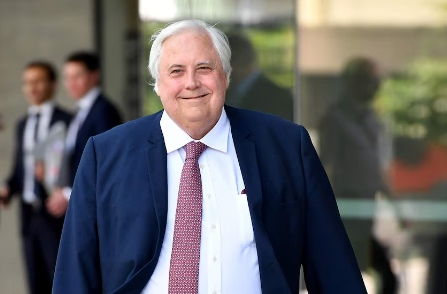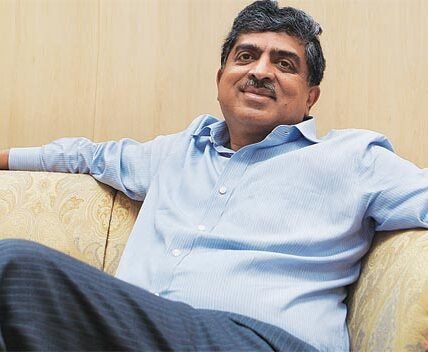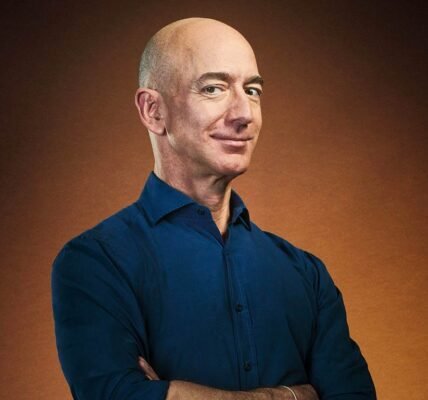Early Life
Clive Frederick Palmer was born on 26 March 1954 at Footscray Hospital in Footscray, Victoria, Australia. He spent his early years in the suburb of Williamstown before moving to Queensland in 1963. Palmer was raised primarily on the Gold Coast, attending Aquinas College and Southport State High School, with a brief stint at Toowoomba Grammar School. His father, George Palmer, was a travel agent and entrepreneur, owning the Akron Tyre Co and establishing the Melbourne broadcasting station 3AK. Clive’s upbringing included extensive family travel, which broadened his worldview.

Palmer studied law, journalism, and politics at the University of Queensland between 1973 and 1975, though he did not complete his degree. He later obtained a Diploma of Law through the Queensland Bar Board and worked as a clerk for the Public Defender’s Office.
Business Career
Real Estate
In the early to mid-1980s, Palmer ventured into real estate, capitalizing on the property boom on the Gold Coast. His success allowed him to “retire” at the age of 29, marking the beginning of his entrepreneurial journey.
Mineralogy
In 1985 and 1986, Palmer founded three companies focused on mining exploration in Western Australia. Among these was Mineralogy, which by 2006 possessed an estimated 160 billion tonnes of iron ore reserves in the Pilbara region. He also acquired Waratah Coal in 2008, further expanding his mining interests.
Palmer faced numerous legal disputes regarding his mining ventures, including a long-standing conflict with CITIC over royalty payments. In 2017, the Supreme Court of Western Australia awarded Mineralogy nearly $200 million in a ruling that Palmer characterized as a victory for Australian law over foreign influence. However, legal battles persisted, and in 2023, his company Zeph Investments initiated arbitration against the Commonwealth of Australia for AUD $296 billion related to contractual entitlements from his iron ore projects.
Queensland Nickel
In 2009, Palmer acquired Queensland Nickel and its refinery, transforming its financial outlook. His initial success included lavish gifts for employees, such as Mercedes-Benz cars. However, the company entered voluntary administration in January 2016, leading to widespread job losses. Palmer’s refusal to pay entitlements to laid-off workers prompted the Federal Government to intervene and cover those costs.
Despite controversies surrounding Queensland Nickel, Palmer announced plans to reopen the refinery in 2019 and repay outstanding employee entitlements. A settlement was reached in August 2019, requiring him to repay the federal government and various creditors, which Palmer claimed vindicated him against allegations of misconduct.
Soccer Involvement
Palmer purchased the Gold Coast United football club in 2008, seeking to establish a prominent presence in Australian soccer. However, his tenure was marred by controversy; in October 2009, he attempted to cap attendance at home games at Skilled Park stadium to 5,000 to save on transport subsidies, a decision that faced backlash and resulted in only 2,616 fans attending the following match. The Football Federation Australia (FFA) intervened, and Palmer scrapped the idea.
On 29 February 2012, the FFA announced that Palmer’s license for Gold Coast United FC would be revoked due to ongoing breaches of rules and regulations. Despite Lowy’s attempts to protect the sport’s integrity, Palmer vowed to contest the decision legally, labeling Lowy a dictator. Following the FFA’s decision, Palmer founded Football Australia, a competing organization for football in Australia.
Titanic II
In February 2013, Palmer announced plans to build a modern-day replica of the RMS Titanic, named Titanic II. He intended for it to be constructed in China and hoped for its maiden voyage from Southampton to New York City in 2016, later postponed to 2018. Palmer aimed to recreate the Titanic as closely as possible to its original appearance, intending to honor the memories of those who died and survived the disaster.
As time passed, it became evident that the project faced significant setbacks, with reports suggesting that no substantial progress had been made since 2015. However, in September 2018, Palmer’s company, Blue Star Line, announced plans to recommence work on the project. In March 2024, he revived the Titanic II initiative, aiming to begin construction in 2025, contingent on securing a shipyard.
Political Career
In April 2013, Palmer founded the Palmer United Party and successfully won the seat of Fairfax in the 2013 Australian federal election, serving one term as a Member of Parliament. However, the party was deregistered in 2017. Palmer revived his political ambitions in 2018, rebranding his party as the United Australia Party. Despite extensive campaigning in the 2019 federal election, his party failed to secure any seats. The party later contested the 2022 federal election, winning a single Senate seat before being formally deregistered again.
COVID-19 Pandemic Involvement
In March 2020, as the COVID-19 pandemic spread in Australia, Palmer funded advertisements promoting a “cure” for the disease, which included hydroxychloroquine, a drug known for serious side effects. The Australian drugs regulator warned against the drug, and while Palmer claimed to have purchased large quantities, experts criticized his approach and the potential for misinformation.
During the pandemic, Palmer challenged the Western Australian government’s border closures, claiming they were unconstitutional. This led to legal disputes with Premier Mark McGowan, who labeled Palmer an enemy of the state. Ultimately, the High Court upheld the border legislation, and both parties ended up suing each other for defamation.
Wealth and Legal Challenges
As of May 2023, Clive Palmer was recognized as the fifth richest Australian, with a net worth of A$23.66 billion, according to The Australian Financial Review. His wealth has been overshadowed by a litany of legal challenges across various aspects of his business interests. Journalist Hedley Thomas noted that Palmer’s legal strategies often prolong litigation, putting financial strain on his adversaries, an approach Palmer justifies as necessary to uphold his rights and business interests.
Conclusion
Clive Palmer remains a prominent and controversial figure in Australian business and politics. His vast array of ventures and legal disputes paints a complex portrait of a businessman whose impact on Australia’s economic landscape is both significant and contentious.





